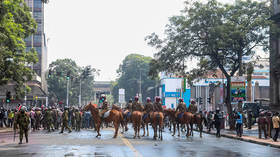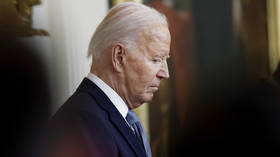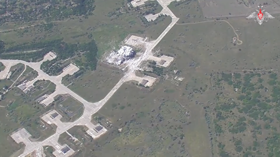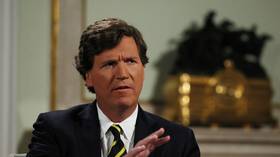Kenya to turn to debt after tax climbdown – president
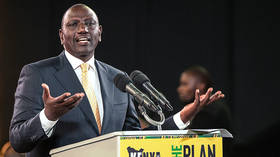
Kenyan President William Ruto says his government will need to borrow more to make up for its budget deficit, following the withdrawal of a contentious IMF-backed tax bill that sparked deadly protests in the East African country.
President Ruto made the statement on Sunday during a roundtable hosted in the State House at the capital, Nairobi, days after he backed down on the 2024 Finance Bill, which contained major tax hikes aimed at generating $2.7 billion in revenue.
Last Tuesday, youth-led protests turned violent when riot police opened fire on crowds of demonstrators who had stormed the National Assembly to protest the tax legislation’s passage, setting a section of the parliamentary building on fire.
The Kenya National Commission on Human Rights reported on Monday that riot police had killed 39 people, including a 12-year-old boy, since the unrest began on June 18. At least 361 others have been severely injured in clashes between law enforcement officers and protesters, according to the group.
However, Ruto has stated that only 19 people have been confirmed dead, disputing the higher figures cited by journalists who questioned him at his office on Sunday.
The president said his government had failed to properly present the tax bill to Kenyans. “If I am given a chance to explain to the people of Kenya what the finance bill was all about and what it would have done for them, then every Kenyan would agree with me,” he said.
His decision to drop the legislation last Wednesday, he claimed, has set the country back two years and will force Nairobi to borrow $7.6 billion just “to be able to run our government.”
According to the Kenyan leader, the move will also affect the employment of 46,000 junior secondary school teachers who are currently on temporary contracts, as well as healthcare provision.
“Instead of borrowing 600 billion [Kenyan shillings], we are going to borrow 600 billion plus 346 billion,” Ruto said.
“I have been working very hard to pull Kenya out of a debt trap... It is easy for us, as a country, to say, ‘Let us reject the finance bill.’ That is fine. And I have graciously said we will drop the finance bill, but it will have huge consequences,” he insisted.
According to a recent report by Kenya’s central bank, Nairobi’s domestic and foreign public debt totals more than $80 billion, with debt servicing accounting for approximately 60% of the country’s revenues.
President Ruto, who had promoted the Finance Bill as a necessary reform to secure IMF funding and avoid debt default, has said his government is considering alternative measures, including budget cuts for his office.
